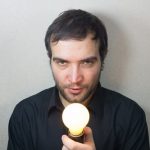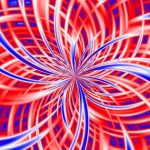Brain scans are establishing if there is a link between suggestibility and the tendency to be easily hypnotised. Everyone is suggestive. If we were not suggestible the entire advertising industry would grind to a halt. The science of advertising has been the subject of intense psychological research almost since the beginning of advertising. Advertisers now know all the tips and techniques for getting and keeping your attention. The aim is of course, to persuade you to buy their products. But on the way researchers have learned a great deal about suggestion, and flow, and states of mind.
Previous studies have been hampered by a lack of direct hard data. Knowing whether an advert worked or not has mostly been a matter of statistics and inferences. But no scientists can actually watch the brain at work as it is exposed to different stimuli.
Psychology researchers are now expanding their studies beyond advertising exposure and into the area of hypnosis. The driver behind this is quite surprising. Advances in neuroimaging (brain scans) is allowing scientists to look directly into the living brain. This means that scientists can tell which parts of the brain are being activated at any particular moment.
The importance of this is that finally, you can tell whether someone is actually hypnotised, or is faking it. And the result is that there is not absolutely no doubt that hypnosis is a real state that can be seen as a distinct configuration in the brain.
This means that almost everything that is known or believed about hypnosis must be reassessed. All the research published in the 20th century was really based on anecdote and theory and supposition. Live brain scans mean we now have the opportunity to study hypnosis objectively. It is now possible to measure the exact effect of different wordings and different techniques.
This means that for the first time controlled experiments can be made that will establish exactly what works and what doesn't, and why. This new approach to research may end up revolutionising hypnotherapy. Maybe hypnosis will finally turn into a hard science.
He is highly regarded in the hypnotherapy community. He is Vice President of the New Zealand Association of Professional Hypnotherapists (NZAPH).
He is regularly consulted for advice by other hypnotherapists around the world. He is known for the quality of his published scripts. He presents at international conferences and has published on hypnosis and advanced hypnotherapy.
He lives in Wellington New Zealand with his wife Trish and a cat called Parsnip.
email: davemason@besthypnosisscripts.com
- AfterwardsnessNachträglichkeit Deferred action - 2019-04-30
- Low Fat Diet Mental Health - 2019-04-12
- Paranormal beliefs in hypnotherapy - 2019-04-09






